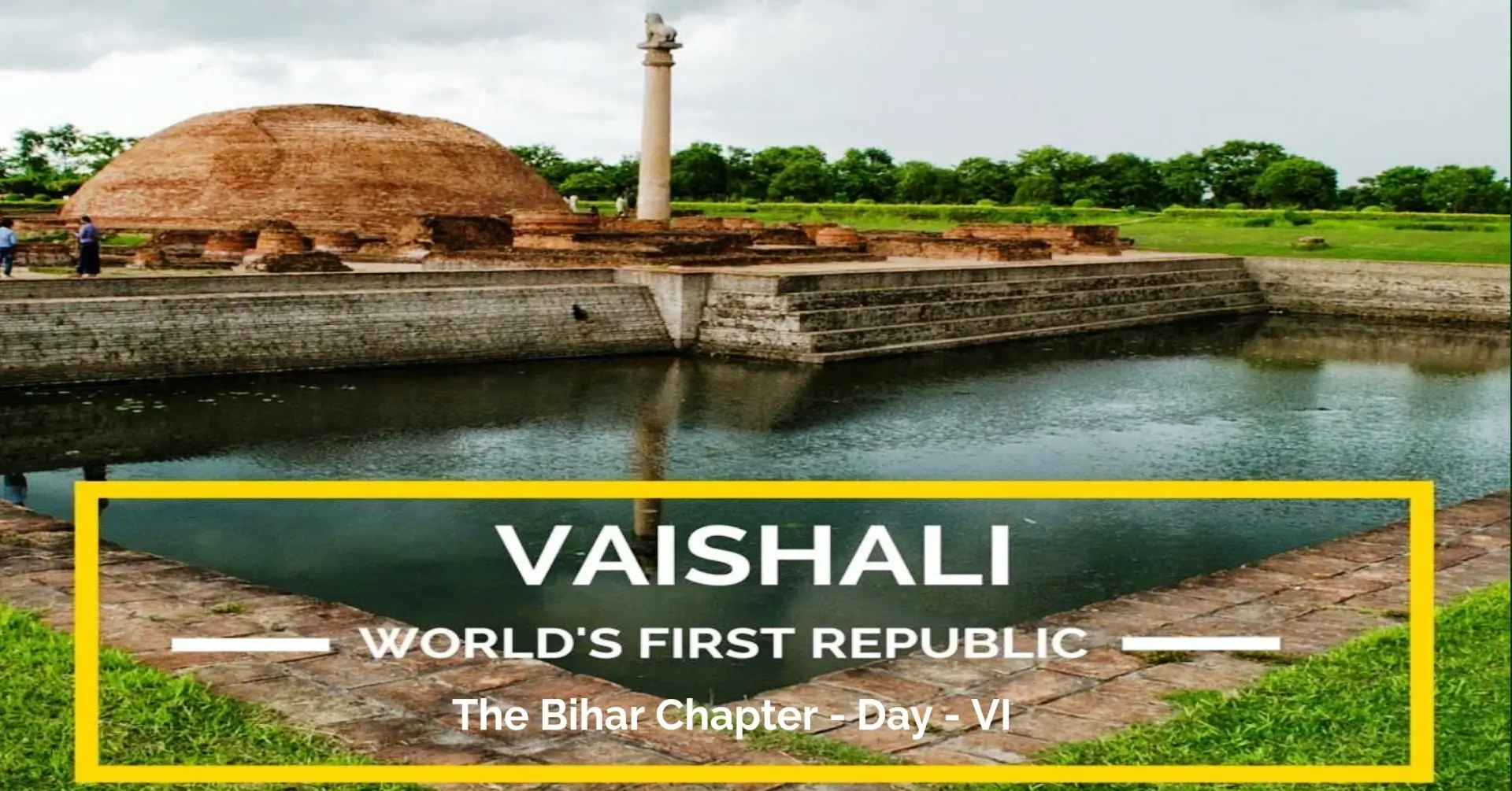Vaishali: When we talk about democracy, Greece is generally considered its originator. But historical evidence shows that the world’s first republic was established on the land of India in Vaishali, specifically in the city of Vaishali in Bihar. This is the place where the seeds of democracy were sown, where great men like Buddha and Mahavira shared their knowledge, and where women got equality in society.
Vaishali was not just a historical city, but was the first awakening of political, religious and social consciousness in India.

Also Read: – Rajgir – Ancient Capital and Land of Meditation – Day – V
Historical Introduction of Vaishali
- Vaishali was named after the king “Vishal” whose capital was this city.
- Vaishali is also mentioned in the Mahabharata.
- It was the capital of the Vajji Mahasangha – a political union in which power was shared by several clans (tribes).
- It is called the world’s first democratic republic because there used to be an assembly here, in which decisions were taken by the chiefs.
- The earliest evidence of the tradition of unity in diversity is found in this land.
Vajji Mahasangh – The Model of Ancient Democracy
- The Vajji Mahasangh functioned like a modern democratic system.
- Each clan was represented in the assembly.
- Decisions were taken by collective consent.
- Kings were elected, not just by lineage.
- Women also had a respectable position.
Mahatma Buddha also praised the Vajji rule and said, “As long as the Vajjis work with unity, no one can defeat them.”
Buddha and Vaishali
- Vaishali has a special place in Buddhism.
- Lord Buddha spent many years here.
- He gave one of his last sermons here.
- His disciple Ananda founded the Buddhist bhikkhuni Sangha in Vaishali.
- Buddha spent his last rainy season in Vaishali.
Inspired by the teachings of Buddha, the people of Vaishali continued to practice truth, compassion and democracy in their lives.
Relation of Mahavira and Vaishali
- Lord Mahavira, the 24th Tirthankara of Jainism, was born in Kundalpur near Vaishali.
- He started his sanyaas life from here
- Vaishali is considered a pilgrimage place in Jain texts
- Majority of Mahavira’s life was spent doing penance in this area
- Thus, Vaishali is also a very holy land for Jain followers.
Ashoka Pillar and Archaeological Importance
- Emperor Ashoka built a grand pillar here, which still stands today.
- This pillar is made of shiny sandstone
- A lion sculpture is seated on it, which symbolizes Ashoka’s power and the spread of Buddhism
- Archaeological excavations in Vaishali have yielded many Buddhist stupas, Buddhist monasteries and other ancient remains
This site is protected by the Archaeological Department of India.
Ambapali – Independent Women and Women’s Empowerment
- Ambapali was a very famous woman of Vaishali.
- She was the “Nagarvadhu” of Vaishali, but she had the right to take her own decisions.
- Inspired by Buddha, she left the worldly life and accepted Buddhism.
- She chose the path of service and meditation by becoming a nun.
- Ambapali’s life is a symbol of the fact that women had rights and respect in ancient Vaishali.
Modern Tourism and Heritage of Vaishali
Today Vaishali has become an important tourist destination. The major places to see here are:
- Ashoka Pillar.
- Buddhist Stupa.
- Mahavira Birth Place Kundalpur.
- Ambapali Forest.
- Ancient statues of Lord Buddha.
The Bihar government has provided many facilities for tourism development here.
How to Reach Vaishali – Travel Guide
By Rail: Nearest Railway Station: Hajipur (35 km), Muzaffarpur (40 km)
By Road: Direct bus and taxi service is available at a distance of 55 km from Patna
Air: Patna Airport is 60 km from Vaishali
Accommodation: Dharamshalas, tourist lodges and hotels are all available
Guide facility is also provided by Bihar Tourism Corporation
FAQs (Frequently Asked Questions)
Q1. Why is Vaishali considered the first republic of the world? Because there was a democratic system of governance in which assemblies and elections were held.
Q2. What is the connection of Lord Buddha with Vaishali? He spent his last rainy season here and gave many sermons.
Q3. Where was Mahavira born? In Kundalpur near Vaishali.
Q4. Where is the Ashoka Pillar located? In the main stupa complex of Vaishali.
Q5. How to reach Vaishali? Bus, taxi and train services are available from Patna, Hajipur and Muzaffarpur.
Conclusion
Vaishali tells not only India but the world that democracy is not just an idea of western civilization, but it is a principle born from the soil of India. Here not only was there a modern system of governance, but religion, women’s respect, and social equality also flourished together. Today’s democratic world should look at Vaishali and learn that the true form of power is service and consent, not rule.
✍️What will be the next part?
Tomorrow in this blog series, we will learn about the legacy of Patna – From Pataliputra to Modern Capital.
Also Read: – The Holy Land of Jainism – The Birthplace of Lord Mahavira – Day – IV




